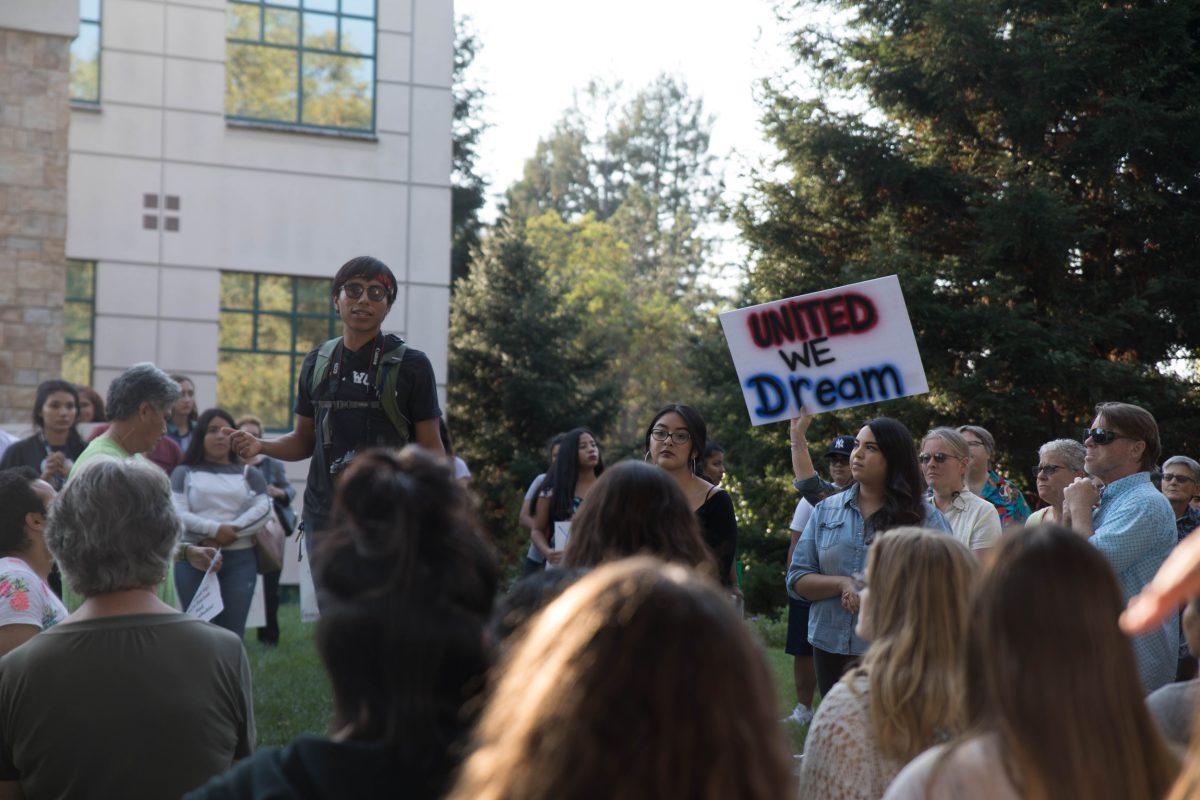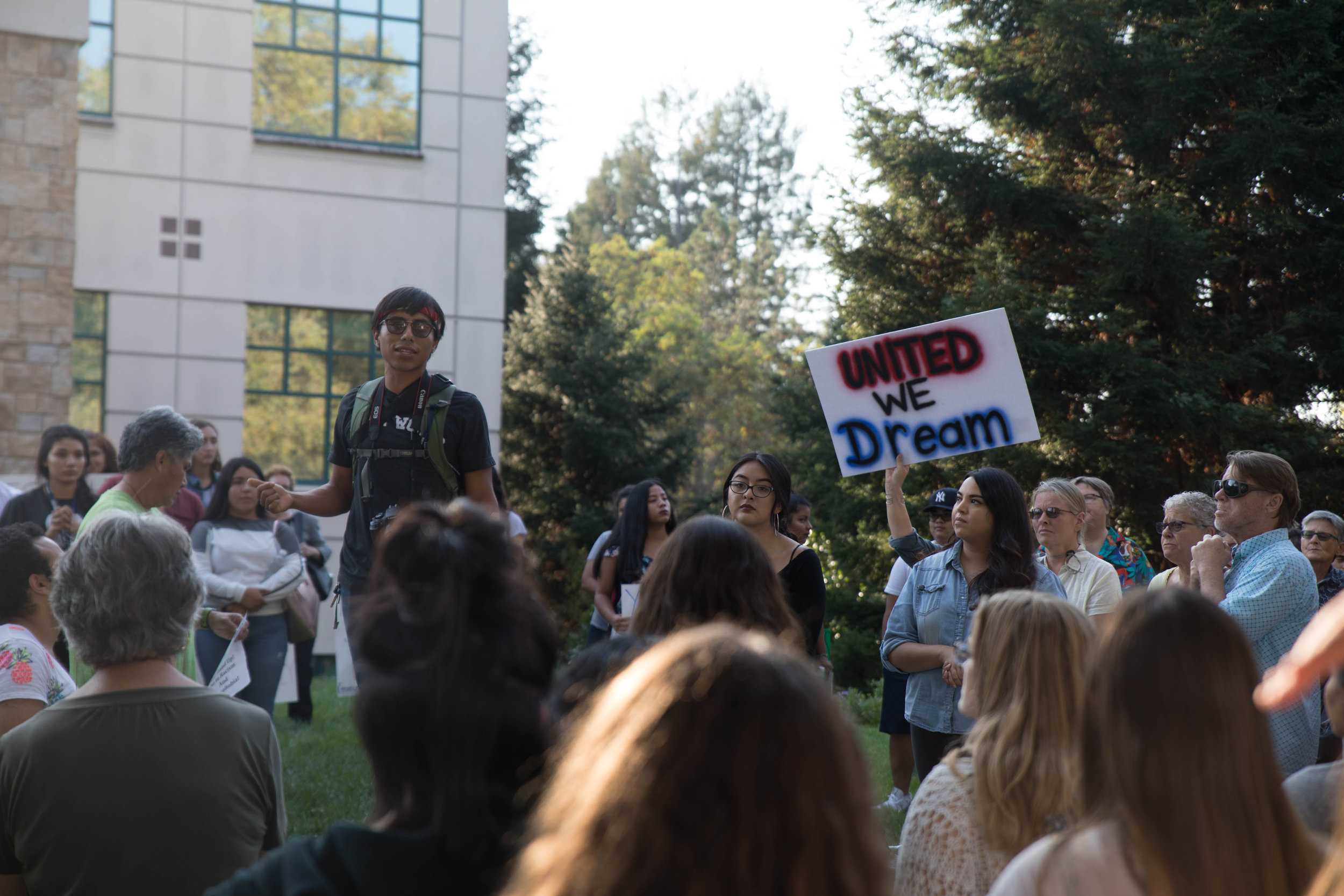While members of Congress and the administration of President Donald Trump continue to negotiate on possibly extending protections for some 690,000 undocumented immigrants protected under the Deferred Action for Childhood Arrivals program, a deadline still looms. As the president made clear six months ago, the DACA program will expire on March 5 if Congress fails to take action to keep the program alive.
It has been five months since Trump announced his administration would end DACA. Congress continues to battle over the fate of the program. Across political isles, Republican Sen. John McCain and Democratic Sen. Chris Coons introduced a bill Monday with 54 co-sponsors to try and grant citizenship to many young undocumented immigrants. The Trump administration continues to refuse any deal on DACA without funding for Trump’s proposed border wall. As this political fight goes back and forth, the anxiety created by this announced shift in federal policy is causing members of the faculty and students of Sonoma State enrolled in DACA to organize to push for greater awareness of what that would mean for them and their families.
DACA is a policy created by former President Barack Obama where enrolling with the government program allowed protection from deportation for young undocumented immigrants whose parents brought them to the United States as children. If this policy was reversed as President Trump plans, it could force many people who have little knowledge of any other home then America to be deported to unknown lands.
But the uncertain future of the plan is creating anxiety about DACA students at Sonoma State, according to organizations on campus that are doing what they can to help these students.
“We’re doing a few events to bring the topic of DACA to school and bring some knowledge to people who don’t know about it,” said Omar Santiago-Monjaras, the head of the Undocu-Scholars Coalition at Sonoma State University. Undocu-Scholars work to support all undocumented students within the university. The group plans to hold several yet-to-be-announced events on campus to promote awareness for Dreamers’ plight. “We’ll teach people a general view of what it’s like to be undocumented,” Santiago-Monjaras said.
Lauren Morimoto, professor of kinesiology and director of diversity on campus, expressed her support of the Dreamers. “In California, we will not giving [any info on Dreamers] to ICE. The CSU has said as much, an I expect the university to hold firm,” Morimoto said. Chancellor Timothy White has also expressed support for DACA students. On Sept. 5, when President Donald Trump first moved to end DACA, the chancellor published a statement condemning the Trump administration’s actions. “Let me express my personal disappointment toward this action that will have such a profoundly negative impact on our nation, our state, our university, and so many of our colleagues, students and friends,” White said. He also urged DACA students to learn as much as they could about their rights in the face of the upcoming rollback.
Undocu-Scholars are standing firm to try to keep DACA the law of the land. “We’re working with other organizations to spread awareness, know your rights, telling people how to call their representative,“ Santiago-Monjaras said. Mariana G. Martinez, professor of Chicano and Latino studies, talked about other efforts on campus: ”Just recently AS[associated students] passed a DACA Call for Action for a Clean DREAM Act and so students should know that they have the support of other students on campus,” she said.
This can be a frightening stance to take, however. Morimoto mentioned talking with other Dreamers in similar positions, many suffering from anxiety for themselves and their families.
Even through this, many still have hope. Morimoto said she hoped Congress would act with haste to end the fight over the Dreamers, stating that polls show that roughly 70 percent of Americans want to keep the Dreamers in America.
Santiago-Monjaras said he wants to remain an important voice in helping to start change towards immigration laws. “If you lose everything else, you gotta keep hopeful,” he said. “I see hopefulness everywhere. I definitely want to stay active; nothing’s gonna change if I just sit here, and I want to do my part to create a hopeful immigration reform.”
As of Saturday, DACA still is scheduled to end on March 5. Before and after this deadline it is clear that many will continue fighting for it, and their right to remain in the United States.. Until then, Santiago-Monjaras, Undocu-Scholars and many others say they plan to continue fighting against DACA’s rollback. If there are no changes to the DACA situation, Undocu-Scholars plan to demonstrate on campus.




































